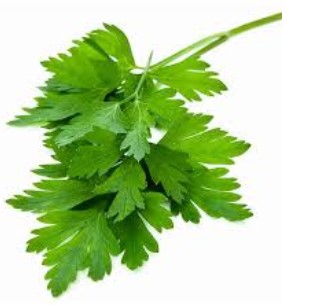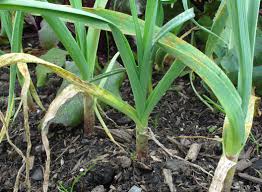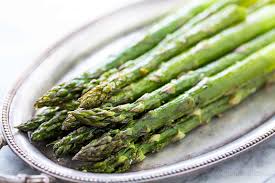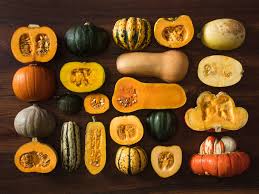The word “parsley” is derived from Medieval Latin petrosiliumwhich is a combination of two Greek words: “Petra” and “Salinon” – meaning “rock celery”.
The modern word “parsley” is a merger of Old English petersilie (which is identical to the contemporary German word for parsley: Petersilie) and the Old French peresil.
None of these names, which merely indicate the Greeks' attempt to differentiate between this “rock celery”from its relative the “water celery” (which we all know as, well, “celery”) implies its extensive culinary uses, or its wealth of meanings given to it by different peoples around the world.
Parsley does not seem to us to be an exotic plant, and rightly so – since it grows perfectly well in the Israeli climate and is a common ingredient in the Mediterranean diet, it is indeed at home here.
It is very easy (and recommended!) To buy a small parsley plant during your regular visit to the nursery in the fall and plant it in the ground or in a pot –as long as is deep enough to allow the root to grow and is in a place where the parsley has at least 5 hours of light during the day and moderate watering.
You can of course germinate the parsley seeds, and this can be fascinating especially if they came from a plant growing in your garden, but usually the task of germinating the seeds requires more patience and skill than working with ready-made seedlings.
Parsley seeds have a particularly bad reputation in this regard – in England it is said that the time it takes for parsley seeds to germinate is the length of time it takes to reach the devil and back.
Personally I have never thought of exploring how congested the traffic to the underworld is and how long it takes, but I can certainly attest that sprouting parsley seeds indeed requires more patience (without diving into superstitions, sometimes it seems to me that they sprout just a moment after I’ve given up on them, just to spite me, or after the seeds of another plant next to them sprouted and served as an example to them).
Parsley has very diverse culinary uses and very different meanings in folklore.
The Greeks, for example, perceived the plant not only as a spice with a wonderful aroma but saw in it meanings and a symbol of death (it was scattered on graves, people avoided serving it to the table): The parsley was dedicated to the Queen of the Underworld, Persephone, and to the ferryboat that transports the souls of the dead to the next world, as a coffin (who received offerings in the form of bundles of parsley and therefore it was customary to leave parsley on graves or plant it next to them).
Another tragic hero that the Greeks dedicated the parsley to his death was Prince Archmoros who died in early childhood.The competitive gameswere foundedin his memory, in which the heads of the winners were adorned with wreathsof parsley.
Another Greek historical story tells of a group of warriors who set out to defend their city from the Carthaginians' invasion, and feared bad luck when they encountered a carriage loaded with parsley – but their leader instilled in them courage and hope by saying it was a sign of impending victory, in which their heads will be adorned with wreaths of parsley.
They prepared wreaths for themselves, and indeed won the battle even though they were in a minority position. I can only imagine in my head, a group of warriors sitting near a carriage and weaving wreaths of parsley…
The Greeks relied on parsley also for folk medicine and practical uses, some of which are still accepted today: relieving the symptoms of a hangover, removing the scents off the hands and mouth that remain after a mealconsisting of dominant odors, treating anemia and edema, as a diuretic, relieving menstrual symptoms and dissolving kidney stones.
The Romans introduced it to the European cuisine and incorporated it into sauces, inspiring the French to incorporate it into the famous “bouquet garni”.
From then on, parsley was successfully assimilated into many dishes – alongside potatoes, soups, salads and even as a classic garnish on the plate. This is probably the culinary equivalent to “and lived happily ever after”.
Yours.
The Garden’s team
Forecast:
In the ORGANIC vegetable baskets we expect (draft only):
Cucumber
Tomatoes
Lettuce
Potato
Sweet potatoe
Pepper
Swiss Chard
Parsley
The Large organic vegetable baskets also include:
Spinach
Beet
Coriander
In the ORGANIC fruit baskets (NEW – Increased variety, price – 70 Shekels)
Oranges
Grapefruit
Banana
Clementine
Pomelo
The large ORGANIC fruit baskets also include: ( NEW – Increased variety, price -100 Shekels)
Lemon
Papaya
Red grapefruit
The ORGANIC Green Basket:
Swiis Chard
A kind of lettuce
Kale
Dill
Green onion
Sprouts
Spinach
NEW – The ORGANIC Basket for couples (price – 150 shekels):
Cucumber
Tomato
Lettuce
Potato
Eggplant
Pepper
Onion
Parsley
Swiss Chard
Beet
Sweet potatoe
Coriander
Beet
Oranges
Lemon
Sweetie












